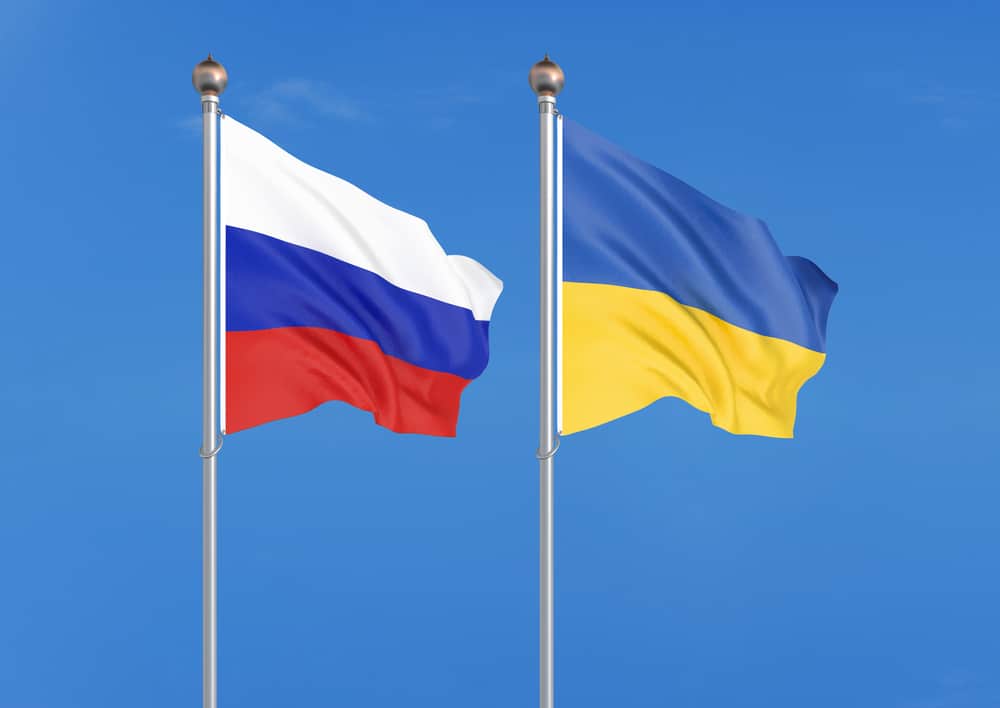Several, seemingly small events in the Russo-Ukrainian War went largely unnoticed in western media recently. But each of them, in their own way, may be significant.
The Fall of Avdiivka
On February 25, Ukrainian President Volodymyr Zelensky said that 31,000 Ukrainian soldiers had been killed since Russia invaded his country two years ago. It was the first time he had released a number of dead. He wouldn’t provide the number of wounded.
On February 4, he said, “About 26% of the national territory is still under occupation,” before adding that “the Russian army cannot make much progress. We have stopped them.”
Both statements are absurd. As The New York Times remarks on Zelensky’s battlefield accounting, “It differs sharply from estimates by U.S. officials, who, this past summer, put the losses much higher, saying that close to 70,000 Ukrainians had been killed and 100,000 to 120,000 had been wounded.”
The 31,000 number may be closer to the number of dead and wounded in the past several disastrous weeks than in the past two years. Russian Defense Minister Sergey Shoigu recently said that over 383,000 Ukrainian soldiers had been killed or wounded since the war began. Yuriy Lutsenko, the former prosecutor general and ex-head of the Ministry of Internal Affairs of Ukraine, says that 500,000 Ukrainian soldiers have been killed or seriously wounded. A number of 400,000-500,000 is consistent with internal Ukrainian communications and reports from the battlefield that 20,000 soldiers a month would be necessary to replace the dead and wounded. That number also accords with the 450,000-500,000 number Zelensky has requested in a new mobilization.
Being absurd was appropriate when Zelensky was a comedian; it may have made Ukrainians laugh. But being absurd when Zelensky is president is not appropriate; it may make more Ukrainians die.
The second statement, that Russia is incapable of further significant advances because the Ukrainian Armed Forces has stopped them is no less absurd. Less than two weeks after making the statement, on February 17, after exhausting every capability it had, the Ukrainian Armed Forces retreated in disarray from the heavily fortified town of Avdiivka as it fell to the Russians. That was a very significant advance. Taking Avdiivka is not just a symbolic victory, as reported in the West, but a strategic victory that could open the door to the Donbas for Russian forces, allowing Russia to solidify the borders of its newly annexed territories.
Following the retreat from Avdiivka, Ukrainian statements about stopping Russia retreated one more step, now claiming that Russia won’t be able to advance. General Kyrylo Budanov, Ukraine’s military-intelligence chief, acknowledged that the loss of Avdiivka was tough, but insisted that Russia has its problems too, and that “they don’t have the strength” to advance significantly and capture all of the Donbas.
American officials echoed Budanov’s assessment, saying that “Russian gains in eastern Ukraine will not necessarily lead to any collapse of Ukrainian lines and that Moscow is unlikely to be able to follow up with another major offensive.”
Kiev said that their armed forces had withdrawn from Avdiivka and established new defensive lines around Lastochkyne and other nearby villages. But on February 26, Lastochkyne fell, and Ukrainian troops retreated to villages further west.
Western officials now say that Russia is “attacking in strength along four parallel axes in the northeast” and that they are “driving forward around Lyman and Kupiansk, in the Kharkiv region.” Newsweek says there are reports that Russian troops have now “advanced west of the village of Lastochkyne.” And military spokesperson Dmytro Lykhoviy now says that Ukrainian troops have withdrawn from Stepove and Severne, two villages near Avdiivka and north of Lastochkyne.
What Killed Alexei Navalny?
It is still not known what killed Alexei Navalny in a Russian prison on February 16. U.S. President Joe Biden says that “Putin is responsible for Navalny’s death.” Zelensky agrees, saying Navalny “was obviously killed by Putin.”
But Ukraine’s military-intelligence chief disagrees. On February 25, General Kyrylo Budanov told reporters that he was sorry to disappoint them, “but what we know is that he really died from a blood clot. And this is more or less confirmed. This was not taken from the Internet, but, unfortunately, a natural [death].” Russia has claimed that a blood clot was the cause of death.
An unexpected claim made by aides to Navalny on February 26 created another wrinkle. Navalny, they say, was about to be released in a prisoner swap. “Navalny was supposed to be free in the coming days,” Maria Pevchikh, the chairwoman of Navalny’s Anti-Corruption Foundation, said. “I received confirmation that negotiations were at the final stage on the evening of Feb. 15.”
Navalny’s aides advance this claim as new evidence that Putin killed Navalny. Pevchikh says that Putin ordered Navalny’s murder to take “the possibility of his release off the table.”
But it seems inconceivable that Navalny’s release could be negotiated by Moscow without Putin’s consent. He wouldn’t have to kill him; he would just have to take his release off the table. Though there is still insufficient evidence to pass judgement on the cause of his death, if it is true that Navalny’s freedom was on the table, that seems to lean towards that Putin did not feel threatened by him or feel the need to eliminate him.
The Firing of Zaluzhny
On February 8, the headlines were dominated by Zelensky’s firing of the Commander in Chief of the Ukrainian Armed Forces, Valerii Zaluzhny. But overshadowed by those headlines was that Zaluzhny was not the only general to go. Zelensky fired his entire general staff and replaced them with a new Chief of General Staff for Ukraine’s Armed Forces and new deputy chiefs.
Though the change over could just reflect a new Commander in Chief choosing his own staff, it might also point to Zelensky ensuring a military command that is loyal to him at a time when the military is angry over the firing of Zaluzhny, and, as The Guardian recently put it, Zelensky “is no longer seen as untouchable, and political competition is returning to Ukraine,” and “Ukrainian society is exhausted by the war.”

































